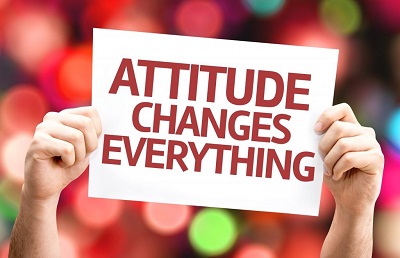
Perhaps most of us give way at times to actions, attitudes and utterances which we well know are below our best. But whenever we depart from being at our best, we must remember that there are at least two things for which we are constantly accountable: One is the effect our attitudes and actions have on us, and the other is the effect our attitudes and actions have on others.
Especially should we be mindful of the effect of our actions and utterances on young and impressionable people. By the time we have become adults, we ourselves may have acquired a solid set of standards from which we may feel that there is not much danger of departing very far, and to which even if we do depart, it may seem rather easy to return—and we may think that occasional small lapses and laxities won’t matter too much.
But while these occasions or periods of letting down may for us be only passing departures, the impressions we implant in others may be permanent. Many a man who has said and done things that didn’t seem to him to change his own well-settled standards and basic beliefs has found that the example of his words and his ways has changed his children and may have led them to permanent departures.
Of course, we may presume privileges which we suppose belong to our years: We may presume that it is all right for us who are older to say and to do things that those who are younger, shouldn’t say and do. But even supposing that we ourselves could, on occasion, stray somewhat (but not too far, we think) from our standards and principles, or from our most acceptable selves, without seeming to hurt ourselves very much, even if it didn’t hurt us (which is doubtful), still we must be mindful of the effects of what we do and say on others, because other people are influenced as much by us when we are at our worst as they are when we are at our best.For this reason, if for no other, it is important to be at our best.
“Rip Van Winkle, in Jefferson’s Play, excuses himself for every fresh dereliction by saying, ‘I won’t count this time!’ Well, he may not count it; and a kind heaven may not count it, but it is being counted nonetheless. Down among his nerve cells and fibres, the molecules are counting it, registering and scoring it up to be used against him when the next temptation comes. Nothing we ever do is in strict scientific literalness wiped out.” These are the words of the celebrated psychologist and philosopher, William James. And he adds: “Could the young but realise how soon they will become … walking bundles of habits, they would give more heed to their conduct …. We are spinning our own fates, good or evil . Every smallest stroke of virtue or of vice leaves its never so little sear … We are … imitators and copiers of our past selves.” (William James, The Law of Habits)
But our habits, good or bad, weren’t always habits. What we now do habitually we once did first, and then again and then again. And since we become “slaves to our own past performance,” we had better be particular about the first performance, because almost anything done once could become a habit, and obviously the reason we have bad habits is because we did the first time what shouldn’t have been done at all. This may seem to offer little comfort to those who already have habits they want to be rid of.
Fortunately, however, bad habits aren’t hopeless. But it takes more effort to get out of a rut than it does to get in and sometimes the only way to get out is to get out all at once. And sometimes the best way to leave bad habits behind is simply to leave them behind without lingering or looking back. The break has to come sometime. Sometime has to be the last time. And it isn’t likely to be any easier later, because habits, like ruts, dig more deeply with time even though at first we may think of them as trifles as something we can start or stop or take or leave whenever we want to.
An ancient philosopher had something to say on this subject. He once rebuked a person for engaging in a gambling game. And when the person protested that lie had only played for a “trifle,” Plato replied: “The habit is not a trifle.” No potentially potent thing is a “trifle.” And the best time to break a bad habit is before the first time. The next best time is NOW: before the next time.
By Samuel Enos Eghan
